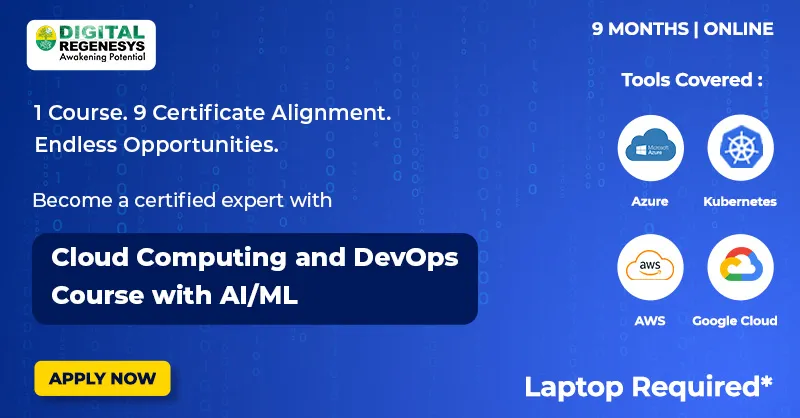Implementing AI in DevOps: Transforming Software Development and Operations

Ever wondered how DevOps teams can move faster, catch errors before they happen, and automate tedious tasks seamlessly? That’s where AI in DevOps comes in.
By 2026, artificial intelligence will not only assist DevOps teams, but it will also become a central part of how they work.
Think about it: AI DevOps automation in 2026 can monitor systems, predict failures, and even optimise deployment pipelines without constant human intervention. Artificial intelligence DevOps use cases are popping up everywhere.
And with ML operations in AI DevOps, machine learning models can be deployed, updated, and monitored automatically, saving teams countless hours.
In this article, we’ll break down how AI can transform DevOps, explore the most important trends for 2026, and share practical ways to implement AI effectively.
By the end, you’ll see why integrating AI isn’t just a “nice-to-have” – it’s essential for modern DevOps success.

Why AI Matters in DevOps in 2026?
AI is changing the game for DevOps teams. By 2026, organisations that leverage AI in DevOps will be able to release software faster, catch issues before they escalate, and optimise complex workflows. It’s no longer just about automation; it’s about intelligence.
Artificial intelligence DevOps use cases show how AI can predict failures, manage cloud resources, and even assist in security monitoring. AI DevOps automation in 2026 reduces human error, improves efficiency, and gives teams more time to focus on innovation.
Meanwhile, ML operations in AI DevOps enable models to continuously learn from data, thereby improving performance without requiring constant manual updates.
Let’s explore the key areas where AI is making the biggest impact on DevOps processes and teams in 2026:
- Predictive Monitoring: AI identifies potential system failures before they occur.
- Automated CI/CD Pipelines: Reduce deployment time and human errors.
- Intelligent Incident Response: AI agents can triage alerts and suggest resolutions.
- Optimised Cloud Resource Management: AI predicts usage patterns and adjusts resources efficiently.
- Continuous Learning with MLOps: Models update automatically to improve DevOps performance.
Discover information on What is Auto-Scaling in Cloud Computing?

Practical Use-Cases and Implementation Tips
Implementing AI in DevOps isn’t just a buzzword. It is happening across industries. Organisations are already using AI to make DevOps faster, smarter, and more reliable. From automating routine tasks to optimising deployment pipelines, the possibilities are huge.
Here are some practical artificial intelligence DevOps use cases and tips for integrating AI effectively in 2026:
- Predictive Issue Detection: Use AI to forecast system failures or performance bottlenecks before they impact users.
- Automated Testing: AI can generate, run, and analyse tests faster than manual processes, reducing bugs in production.
- Continuous Deployment Automation: Integrate AI DevOps automation in 2026 to manage CI/CD pipelines efficiently.
- Resource Optimisation in Cloud Environments: Let AI dynamically allocate cloud resources based on workload predictions.
- ML Operations (MLOps): Implement ML operations in AI DevOps to deploy, monitor, and retrain models automatically.
Risks & Challenges of AI in DevOps
While AI in DevOps offers significant benefits, it also poses risks. Automating complex workflows can introduce errors if AI models aren’t properly monitored.
Overreliance on AI may lead to unnoticed vulnerabilities, and integrating AI into legacy systems can be challenging. Organisations must understand these challenges to implement AI safely and effectively.
Here are the main risks and challenges to consider when adopting AI in DevOps:
- Model Accuracy & Reliability: AI predictions are only as good as the data and algorithms behind them.
- Security Risks: AI can introduce new vulnerabilities if not appropriately secured.
- Integration Complexity: Merging AI tools with existing DevOps pipelines can be technically challenging.
- Skill Gaps: Teams need knowledge of both AI and DevOps to succeed.
- Over-Automation: Excessive automation without human oversight can lead to critical errors.
Read about AWS Cloud Computing Certification.

Skills & Organisational Readiness for AI in DevOps
To successfully implement AI in DevOps, organisations need the right mix of technical skills, strategy, and infrastructure. By 2026, teams must understand both AI and DevOps principles to harness the potential of AI-DevOps automation fully.
Preparing staff and processes is crucial for seamless adoption.
Here’s what organisations and professionals should focus on to stay ready for AI-driven DevOps:
- AI & Machine Learning Expertise: Understand algorithms, model deployment, and predictive analytics.
- DevOps Fundamentals: Strong knowledge of CI/CD pipelines, cloud platforms, and infrastructure management.
- Data Management Skills: Ensure the collection and maintenance of clean, high-quality data for AI models.
- Security Awareness: Integrate AI safely into workflows without exposing vulnerabilities.
- Continuous Learning: Stay up-to-date on emerging artificial intelligence, DevOps use cases, and automation tools.
Measuring the Impact of AI in DevOps
Understanding the benefits of AI in DevOps goes beyond implementation. Organisations need to track performance, efficiency, and ROI to ensure AI investments are delivering results.
By monitoring key metrics, teams can identify areas for improvement and continuously optimise AI-driven workflows.
Here are practical ways to measure the impact of AI in DevOps:
- Deployment Speed: Track reductions in release cycles and faster CI/CD pipelines.
- Error & Incident Reduction: Measure fewer system failures or bugs due to predictive AI monitoring.
- Resource Utilisation: Monitor cloud and infrastructure optimisation from AI-driven resource allocation.
- Team Productivity: Assess time saved on repetitive tasks and enhanced focus on strategic initiatives.
- ROI of AI Tools: Calculate cost savings and efficiency gains from AI integration in DevOps workflows.
Understand the basics of What is a Hypervisor in Cloud Computing?

Conclusion
AI in DevOps is transforming the way software is developed and deployed. The potential for faster releases, smarter decision-making, and reduced errors is enormous.
However, success depends on preparation. Organisations that understand AI DevOps automation in 2026, leverage ML operations in AI DevOps, and invest in skills development will gain a competitive edge.
Upskilling is crucial, and structured learning can make all the difference.
To advance your skills further and gain hands-on expertise, explore Cloud Computing and DevOps courses that integrate AI-driven practices.
For more opportunities to enhance your technical knowledge, visit Digital Regenesys.
Last Updated: 24 November 2025